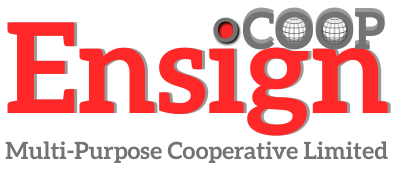The registration process for companies, NGOs, and cooperatives in some African countries can be challenging and counterproductive. Often, the requirements are overly stringent, bureaucratic, and outdated, which hinders rather than supports economic growth. While the intentions behind these regulations may aim to ensure accountability, prevent fraud, or maintain order, the result can be barriers that discourage potential investors, local entrepreneurs, and community organizations from establishing their ventures.
While it is a known fact that the process of registering companies, NGOs, and cooperatives in various African countries can be cumbersome, restrictive, and at times, self-defeating and detrimental to economic growth. Some countries like Rwanda and Nigeria have made great strides toward simplifying business regulations, others continue to maintain complex and outdated processes that act as barriers to entrepreneurship. This regulatory landscape often creates obstacles for small and medium enterprises (SMEs) as well as for individuals who seek to contribute to their communities through NGOs and cooperatives.
In many cases, countries impose complex administrative steps, require excessive documentation, or maintain high fees that are particularly burdensome for small and medium enterprises (SMEs) or individuals. This not only stifles innovation and entrepreneurship but also restricts access to employment and economic participation for many, particularly in rural areas where cooperative and NGO activities can have transformative impacts.
On the other hand, countries that simplify their registration processes, reduce fees, and modernize legal frameworks often see increased business registrations, more foreign investment, and significant job creation. Reforming these regulations to make the processes more accessible could yield similar benefits across African economies, fostering local entrepreneurship and helping to improve income levels and economic resilience.
Streamlining these procedures and ensuring they reflect current economic needs could make the business landscape more inclusive and growth-oriented.
Take Kenya, for instance, where the requirements for registering an NGO or cooperative can be exceptionally stringent. Prospective organizations must navigate a series of bureaucratic steps, including lengthy background checks, securing clearance from multiple government agencies, and providing extensive documentation. These procedures not only delay the process but also dissuade potential entrepreneurs and community leaders who may not have the resources or connections to meet these demands. This limits the ability of grassroots organizations to thrive and hinders economic development in underserved areas.
Nigeria faces similar challenges, particularly with cooperative registration. Cooperatives, which are essential in rural and agricultural communities, often encounter hurdles in the form of costly registration fees and stringent requirements for minimum membership numbers. These regulations are particularly hard on smaller cooperatives that may not have access to extensive capital or networks. Such obstacles restrict cooperatives from becoming fully registered entities capable of accessing government support, financing, and other critical resources that would enable them to flourish and contribute to local economies.
In Ghana, registering an NGO can be an overwhelming process, especially for those without a strong legal background. The procedural requirements are often complex and lengthy, with several layers of approvals needed before an NGO can be granted a certificate of operation. High administrative fees, coupled with requirements for audited financial records even before a project has begun, make it difficult for aspiring NGOs to get off the ground. This not only discourages social entrepreneurship but also limits the social impact NGOs can achieve in local communities.
South Africa, while relatively more streamlined in its approach to business registration compared to some of its neighbors, still presents significant challenges. Registering a cooperative, for example, can be daunting due to strict regulations and substantial paperwork. The requirements include not only financial disclosures but also detailed member agreements, which can be complex for communities with limited formal education. Although South Africa has made some progress in easing business regulations for SMEs, there remains room for improvement, particularly for cooperatives and NGOs, which are critical for empowering local communities and driving grassroots development.
In Tanzania, the situation is similar, with strict regulations governing cooperative registration. The process often involves numerous steps, from obtaining verification from local leaders to meeting specific capital requirements. This makes it difficult for cooperatives, especially in rural areas, to formalize their operations. Such restrictive measures can stifle community-driven initiatives that have the potential to improve food security, generate employment, and foster local economic growth. With simpler procedures, Tanzania could support a more vibrant cooperative sector that contributes to the national economy.
The Central African Republic (CAR) also faces unique challenges in cooperative registration, where requirements are often misaligned with the realities of rural communities that depend on cooperative structures for survival. CAR’s regulations frequently require detailed administrative procedures and large fees that many small cooperatives simply cannot afford. This is especially burdensome for agricultural cooperatives, which are crucial to food security and income generation for much of the population. Simplifying registration procedures could unlock substantial economic opportunities, fostering sustainable development within these communities.
In Egypt, the process of registering an NGO or cooperative comes with a distinct set of requirements that can often deter new organizations from even attempting formal registration. NGOs, for example, must provide extensive documentation and are subject to frequent oversight, creating an environment that some organizations find restrictive. Cooperatives face a similarly challenging landscape, where the approval process can be prolonged and costly. Reforms in Egypt that prioritize streamlined processes and transparency could encourage more individuals to start cooperatives or NGOs, which would benefit both urban and rural communities through job creation and enhanced services.
Contrasting these challenges are nations like Rwanda, which have successfully streamlined business regulations to encourage investment and foster growth. Rwanda’s business-friendly reforms, which include reducing the number of required approvals and minimizing fees, have led to an influx of both local and foreign enterprises. Simplifying the registration process has allowed cooperatives, SMEs, and NGOs to thrive, creating jobs and stimulating economic development. Rwanda’s example shows that regulatory reform can be a powerful tool for economic empowerment and sustainable development.
Across Africa, there is a growing recognition of the need to reform registration processes and remove barriers for organizations that seek to drive positive change. By simplifying and modernizing these regulations, countries can unlock the potential of local entrepreneurs, cooperatives, and NGOs, which play a vital role in economic development. Easing these regulations would allow for more inclusive economic participation, particularly for women and youth who often spearhead cooperative and NGO initiatives in their communities.
The impact of outdated and restrictive regulations goes beyond individual businesses and organizations; it affects national economies by limiting the growth of sectors that have significant potential. By implementing reform in Kenya, Nigeria, Ghana, South Africa, Tanzania, Egypt, and the Central African Republic, governments could foster a more favorable business environment that encourages investment, innovation, and job creation. Such reforms could include reducing fees, streamlining documentation requirements, and offering support programs that make it easier for cooperatives and NGOs to register and operate legally.
In conclusion, at Ensign, we believe in the power of cooperatives and NGOs to create lasting change in African communities. By advocating for streamlined registration processes and modernized regulations, we aim to support the development of community-led initiatives that can transform lives. We call on policymakers across Africa to consider the benefits of making business registration more accessible, as it not only strengthens local economies but also contributes to social and economic resilience for future generations.
Using internet technology for registration is a step forward, but it does not automatically eliminate the bottlenecks, excessive documentation, and cumbersome procedures currently in place. True reform requires not only digitization but a simplification of the requirements and processes themselves to create a truly enabling environment for Africa’s cooperatives, NGOs, and small businesses.

